Vienna is the largest municipal housing owner in Europe. About half of the city’s population lives in subsidised housing, while only around 30% of the Viennese apartments are privately owned. The public ownership of such a large housing stock gives the Vienna municipality an important leverage over housing affordability and other aspects of urban development. Wiener Wohnen is a city-owned company, Europe’s largest municipal property management service, that manages the city’s communal apartments and the public spaces and facilities connected to them. Due to its scale and significance in the city, Wiener Wohnen’s role goes beyond housing: the company is also engaged in empowering its residents and giving them a voice in the decision-making processes around housing, especially related to renovation.
Eutropian‘s Bahanur Nasya and Levente Polyak spoke with Julia Girardi-Hoog, head of Wiener Wohnen’s Department for Social Affairs and Service to explore the challenges and opportunities that come with building participatory processes at such a large scale.
What is the general role of Wiener Wohnen within Vienna’s housing provision?
The Viennese housing market is very unusual compared to other cities. We own and manage about 220,000 apartments, hosting just under half a million people – about a fourth of the city’s population. Besides municipal apartments, Vienna has another non-profit housing sector as well, consisting of subsidised rental and cooperative apartments, which is almost as large as Wiener Wohnen. About half of the population of Vienna lives in subsidised housing. Vienna has a rather small amount of privately owned apartments – around 30%, while in other cities their proportion is over 50%. We are very privileged as a city to have such a large housing stock that is owned and managed by the city itself. We are the largest municipality housing owner in Europe.
There are lots of challenges when it comes to an old, cheaply built housing stock like Vienna’s. The city’s population is growing fast with increased housing needs and while there was a stop in building new social housing for a period, Wiener Wohnen actually started building its own social housing again as a response to these needs. As a municipal company, we need to expand the city’s public housing stock, in order to reduce pressure on the housing market and calm rising housing prices. If we don’t grow, we will push people into private housing which drives the prices up.
Who has access to housing provided by Wiener Wohnen?
We have one key access criterion: people need to have been living in Vienna at the same address for two years – this is often a challenge. Then, their nationality needs to be Austrian, EU or once they have been granted asylum status and they have been living in Vienna for at least two years at the same address, they can move into a social housing.
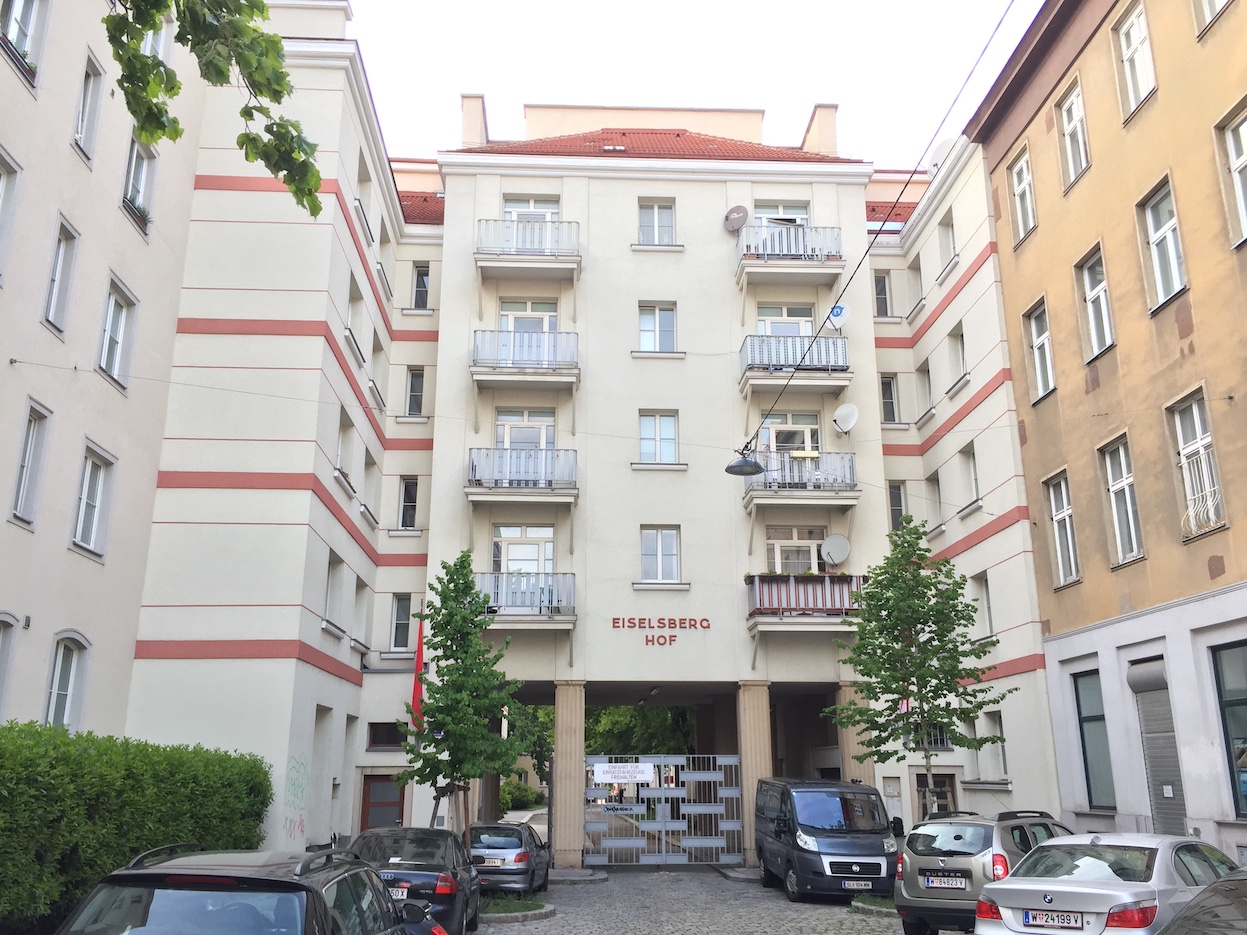
Wiener Wohnen does a lot beyond owning and renting houses. What are your areas of competence within the Viennese city administration?
While we’re technically not a municipal department, our budget is approved by the Viennese City Council that requires the agreement of political representatives. We always need the agreement of the full political assembly which puts us in a “sandwich position”, limiting our opportunities for investment.
Our definition is “housing provider” and this means that we are not supposed to interfere with other social services. There is a contradiction in this: while many people want us to be as cheap as possible and just provide secure housing, our knowledge of the tenants allows us to see the problems they live with. Wiener Wohnen employs eleven case managers but they mostly act when it comes to problems with paying rent. They can support people with social problems to a limited extent, but most often they only get active when people are about to get evicted because they haven’t paid rent for a long period.
We are building coalitions with different players to address these social problems. For instance, we can offer spaces to initiatives, inviting them to move into our ground floor premises and provide proximity services to our tenants. However, Vienna’s data protection policy doesn’t really allow us to share the data of tenants in need with other service providers so it’s a daily struggle for us to connect what we see as a problem and what we can do with it. Even when we are able to engage NGOs, there is a capacity problem as we have half a million tenants. Therefore, we work with various NGOs and organisations at the regional level. For instance, Wohnpartner, a subsidiary of the Vienna Municipality has over 150 employees to support residents’ initiatives, strengthen self-organisation among them and manage conflicts in social housing complexes.
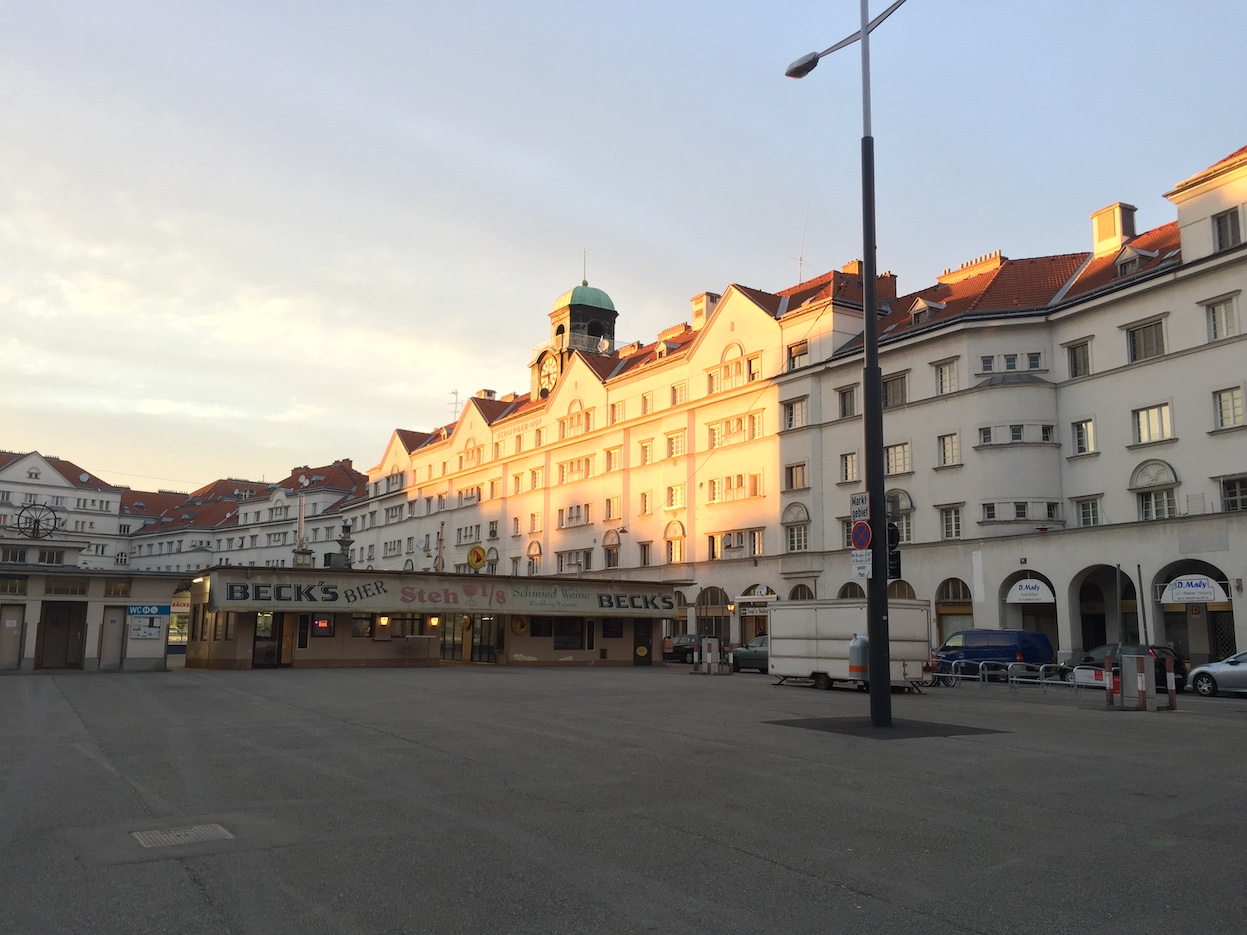
How is your cooperation with social service providers?
It is challenging for us is to provide housing for people with special needs, who need a lot of counselling. We cannot invest in a lot of social work and helping with labour market access is not our expertise. This is why we really appreciate the work with NGOs. There is also a change in the housing strategy: the new direction of the Fonds Soziales Wien (Vienna Social Fund) is to deinstitutionalise people who need shelter, by moving them from specialised institutions to regular housing. It has a major impact on the housing market because now social service providers need a lot of houses. We can respond to this growing need by increasing our stock.
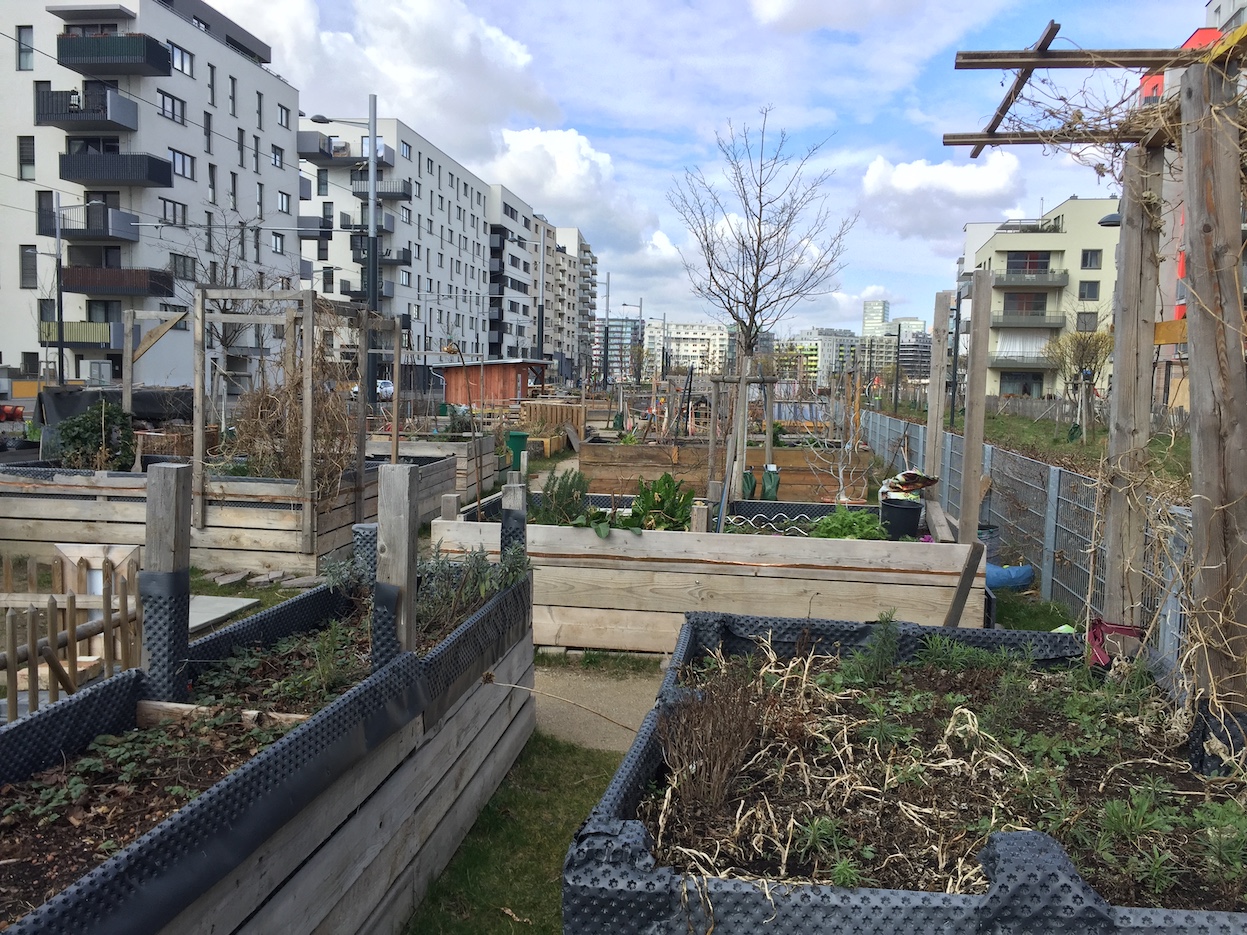
How is your activity connected with policymaking within the municipality?
Municipal housing is a huge system with many interacting elements in it. Sometimes the ideas come from us based on our observations, sometimes we implement ideas coming from other parts of the municipal administration. We can both inspire policies and support their adaptation. We are close to the problems and this puts us in the position of early warners. Two months into the lockdown we immediately saw that many people were unable to keep paying rents. We began approaching MA40 (Vienna’s Social and Health Rights Department) and other organisations that usually help when tenants cannot pay their rents. This was the moment when the mayor announced that Wiener Wohnen tenants shall not worry about their rents. In other cases we accommodate ideas coming from the outside. For example, when the environmental department decided that the city needs to create green facades to tackle climate change, they reached out to us to identify potential pilot cases.
How do you define the objectives or the parameters in terms of social cohesion?
We are in the process of defining our social strategy. While there are many publications about how wonderful the Gemeindebau (municipal housing) is, we have few undertakings about the social aspect of housing provision. In the meanwhile, we have a lot of legal commitment to the financial and technical requirements of housing provision. With the regularly changing Bauordnung (the building code defining land use, construction safety and accessibility standards), it is an enormous challenge to keep up with these commitments and still pay the bills. Our social ambitions have less legal commitments, and we have some space to interpret and address our challenges and innovate within our competence.
How do you work on community engagement and social cohesion? What are the main objectives of this work?
For the past 10-15 years, we have been working with Wohnpartner, an organisation that helped us with community building. The fact that our tenants are increasingly diversified, Austrian tenants are getting older and new groups are moving in with different cultural backgrounds, causes tensions as these groups are not used to living next to one another.
When we build new social housing and new people move in, Wohnpartner helps us with the Besiedlungsmanagement (informing new tenants about their possibilities and powers), bringing residents together to get to know one another. Wohnpartner also leads gardening projects with residents and organises community or neighbourhood parties. These events enable residents to recognise that they are in a safe space together, help them build trust towards one another and learn how to deal with conflicts that are naturally occurring when so many different people live in such tight spaces. When we receive complaints about certain issues or certain persons that are disturbing the neighbours, we can pass this information on to Wohnpartner. When we hear about conflicts, they try to mediate and enable the tenants to find solutions themselves within the neighbourhood.
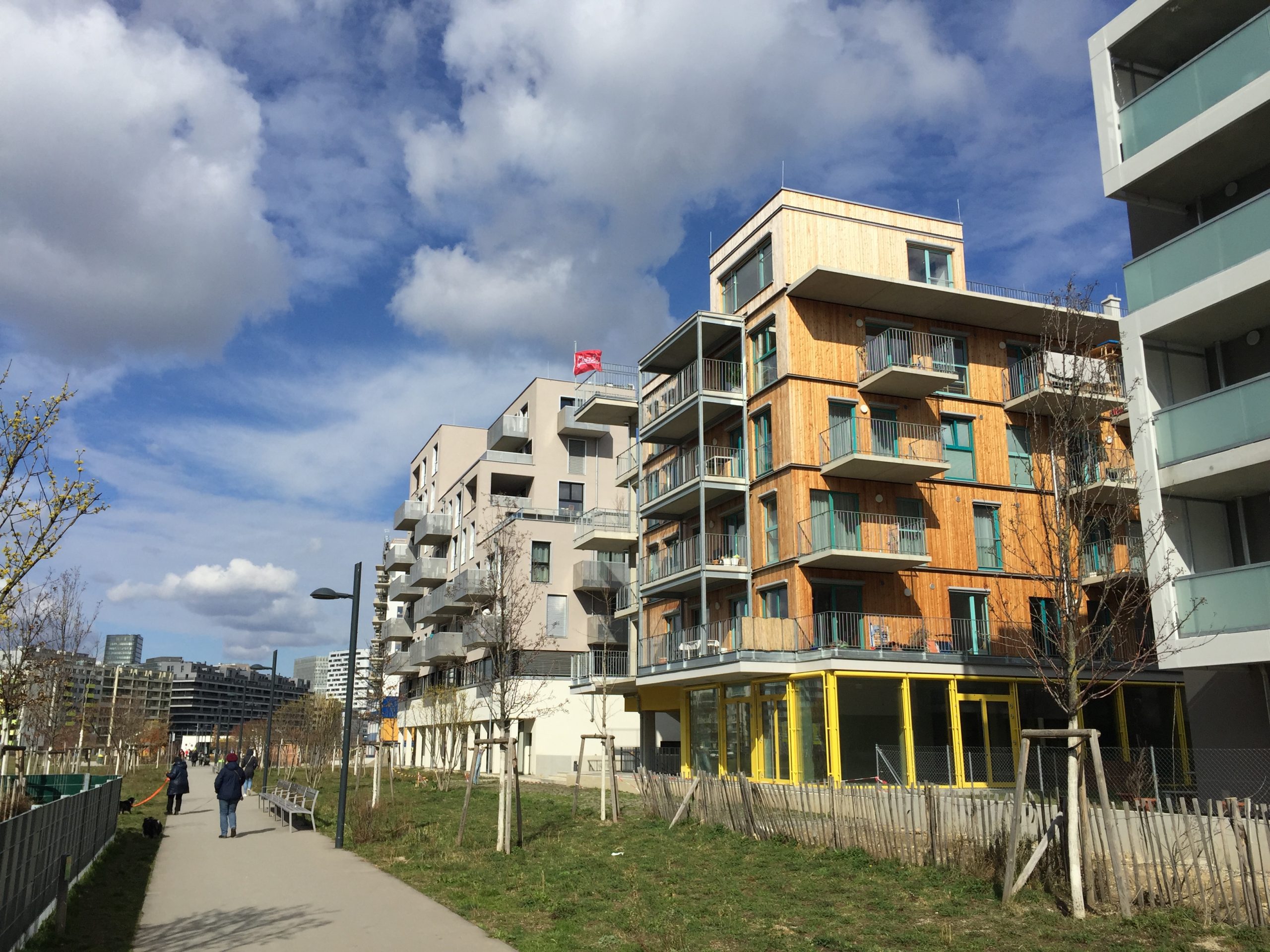
How would you describe innovation in terms of social cohesion and integration? How can you go beyond the individual cases and support specific vulnerable groups or help people function better in society?
We define social innovation as looking at the processes and identifying what could work better. We take impulses from other cities that are within our scope. We train our staff to recognise and handle emerging problems: having such a large tenants’ group, we can foresee trends like more cases of dementia, for instance. Ageing is a huge problem, we have a lot of projects just focusing on how we can keep people safely at home and within their neighbourhood. We also have specific moments that drive innovation: the IBA (International Building Exhibition) is a test bed for us with 39 pilot projects that we implement, around the themes of neighbourhood development, climate adaptation, affordability and the renewal of the existing housing stock.
It’s really hard to change even small wheels inside a huge machinery, as at every turn of a little wheel there will be consequences somewhere else in the machinery. There are various budgetary and legal reasons for why things are like they are, and whenever you just turn a little wheel, you have the whole machinery protesting. It takes a lot of energy and motivation to keep people developing the services, rethinking the processes, evaluating the risks – because you must take some – so we always have to work with statistics and probabilities when we implement a new project. Still, a lot is possible. We keep on looking at what other housing providers do. It’s always easier for a smaller housing provider to start an innovative project that is quick to design and implement, but when we see the benefit for us we really fight and try to implement the new solutions also at our scale.
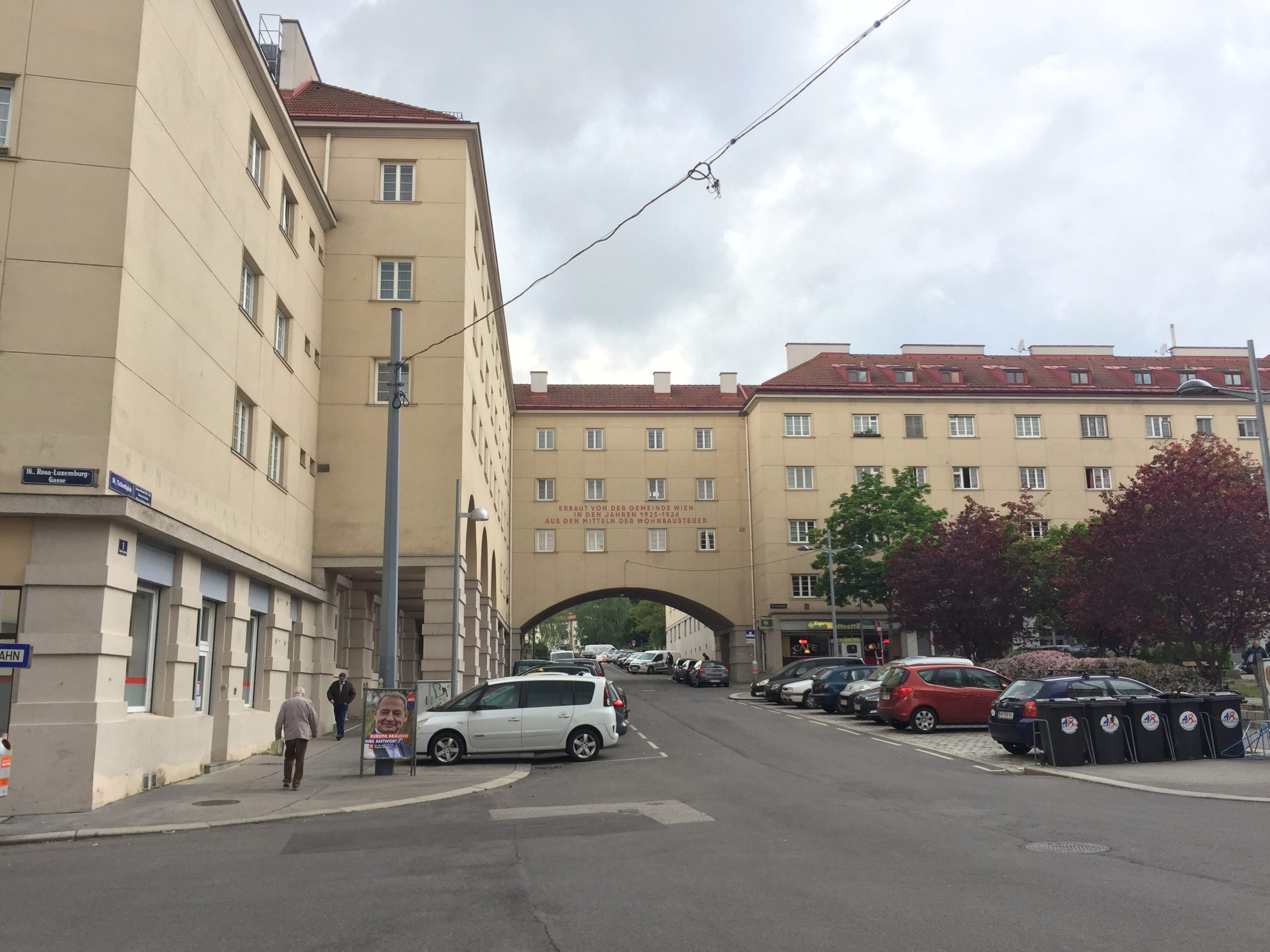
Beyond housing, Wiener Wohnen and its partners provide many services to residents. How have the experiences and expectations of tenants change in the past decades?
We offer many services that usually are not the responsibility of housing providers. We have a 24-hour hotline and whenever there is an emergency, a leak or power shortage, our team would go to solve it immediately. In the meanwhile, we can sense that loneliness is growing among our residents. 90% of the callers are older people who just want to talk with someone, they know that someone nice will answer their call on the hotline.
It is similar with innovation: whenever we try to change a situation, alter the status quo, there will be many complaints because many people are afraid of change. This attitude is connected with loneliness and isolation which increased even further during the pandemic. Even younger people now have more time and complain about things they wouldn’t normally notice. We know from our research that behind their complaint, the root problem is loneliness, and it affects both their own well-being and also that of the neighbourhood. Loneliness causes frustration: the neighbourhood could be the solution to this if people would just go out more and talk more to the neighbours. But loneliness can also be a negative drive when they don’t have the self-confidence anymore for positive interaction with neighbours.
Beyond complaints, how can you empower your tenants? In what ways are tenants represented in decision-making?
We have a long history of tenants’ councils and we also advise residents about various aspects of housing, including how to read their bills, for example. Tenant councils are elected from and by the tenants in a building. Wohnpartner supports the organisation of their elections to make sure it’s really effective. Every house has a chance to elect one councillor, but many houses don’t have committees because they had no candidates or had a very low participation.
What do councillors receive in exchange?
Every house can elect one councillor who represents only the interests of the one house; there’s no larger body. We invite them once a year to inform them about the new developments of Wiener Wohnen, and they are also invited to the City Hall where the mayor gives them appraisal. These events give them visibility and appreciation for their time and efforts.
Some councillors, mostly women, are actually proactive and they can initiate new projects, they can act as social drivers. They can be very committed, collecting the needs of tenants and inform us, making suggestions. But the key issue is always the expenses and many councillors are hesitant concerning any investments that would affect their utility bill.
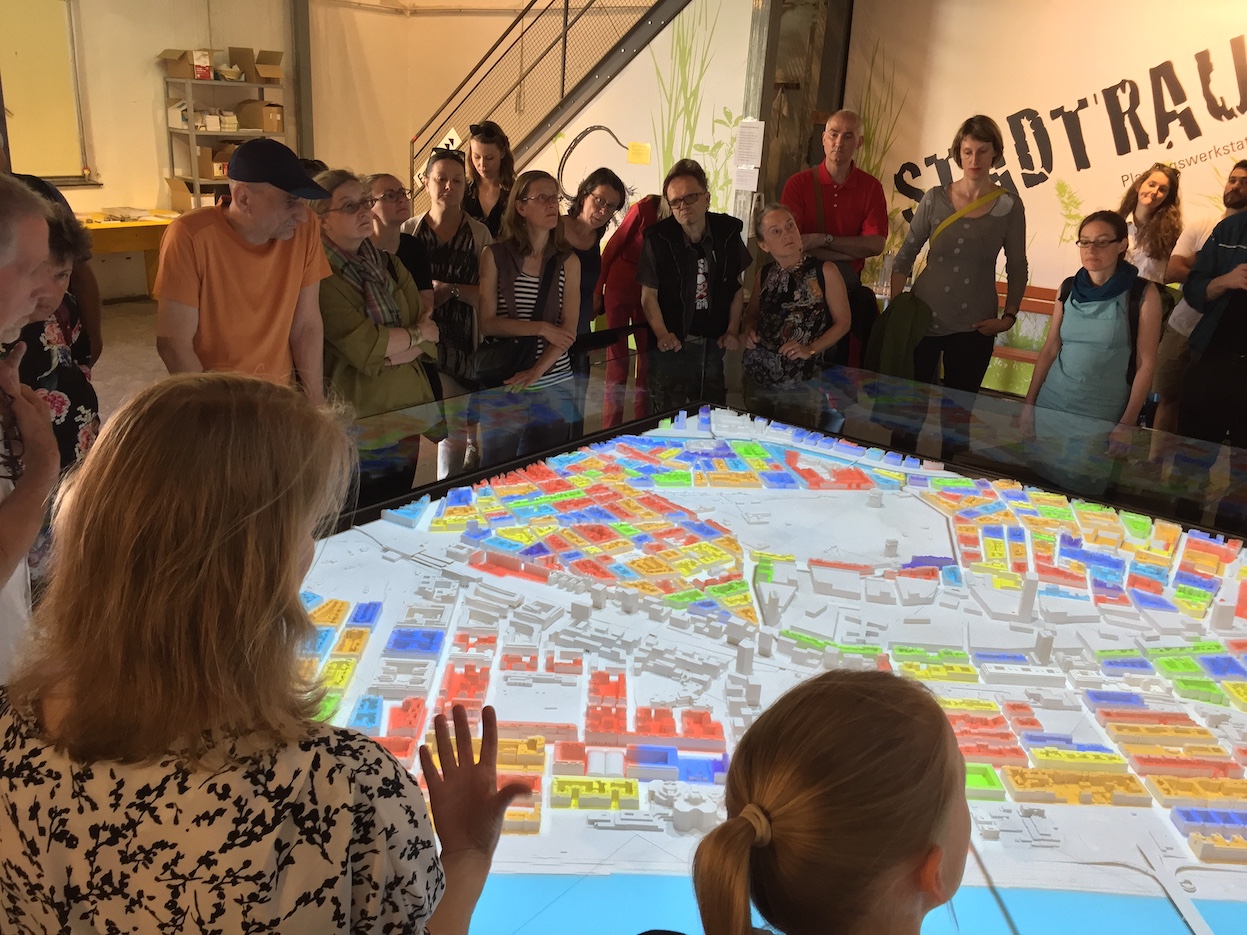
How well can these councillors represent the needs of more diverse social groups?
In a certain sense the tenant councils reproduce the power system of the broader society within the participation structure of public housing. The most vulnerable groups of Viennese society don’t understand much about tenant councils and don’t participate at the vote. Tenant councillors are often against any investment that could potentially lead to noisy activities in the gardens. Whenever we create a new facility on a playground, the next day at least ten people will complain that it is too noisy. Whenever someone plays football outside, there will be people calling and a “football forbidden” sign will appear the following day. There is a democratic deficit here: while a minority can block investments, children cannot complain that they are banned from everything as they don’t have a voice.
Tenant councils are elected among all residents but most of the information inviting people to participate is in German and most immigrant families don’t vote. Moreover, young families, mothers and fathers cannot invest a lot of time in such things. In the end, not all participation is necessarily progressive or innovative. While we can try to rearrange the garden and grow vegetables and make a garden booth or an organic café, many people do actually have completely different problems.
Kids play video games several hours a day and when you ask them about the changes they would like, they will request broadband and Wi-Fi. We try again and again to develop ideas with them, but you really need to put a lot of energy into it. It’s not like you pop up there, make a quick workshop, and have a list of ten ideas that can be easily financed and implemented. It’s a much longer process, and you also need to make suggestions or variations to them as they often don’t know what their options could be for a change.
How could the tenant councils work better?
They should really be caretakers for their houses, and in my opinion they should really have a good understanding of who is living in the apartments. They should also be negotiators between different needs. You need to empower tenants but you also need to involve younger people who participate in the labour market and know how to deal with different challenges. Otherwise we always see the same groups in participation, who have the know-how and the time to participate.
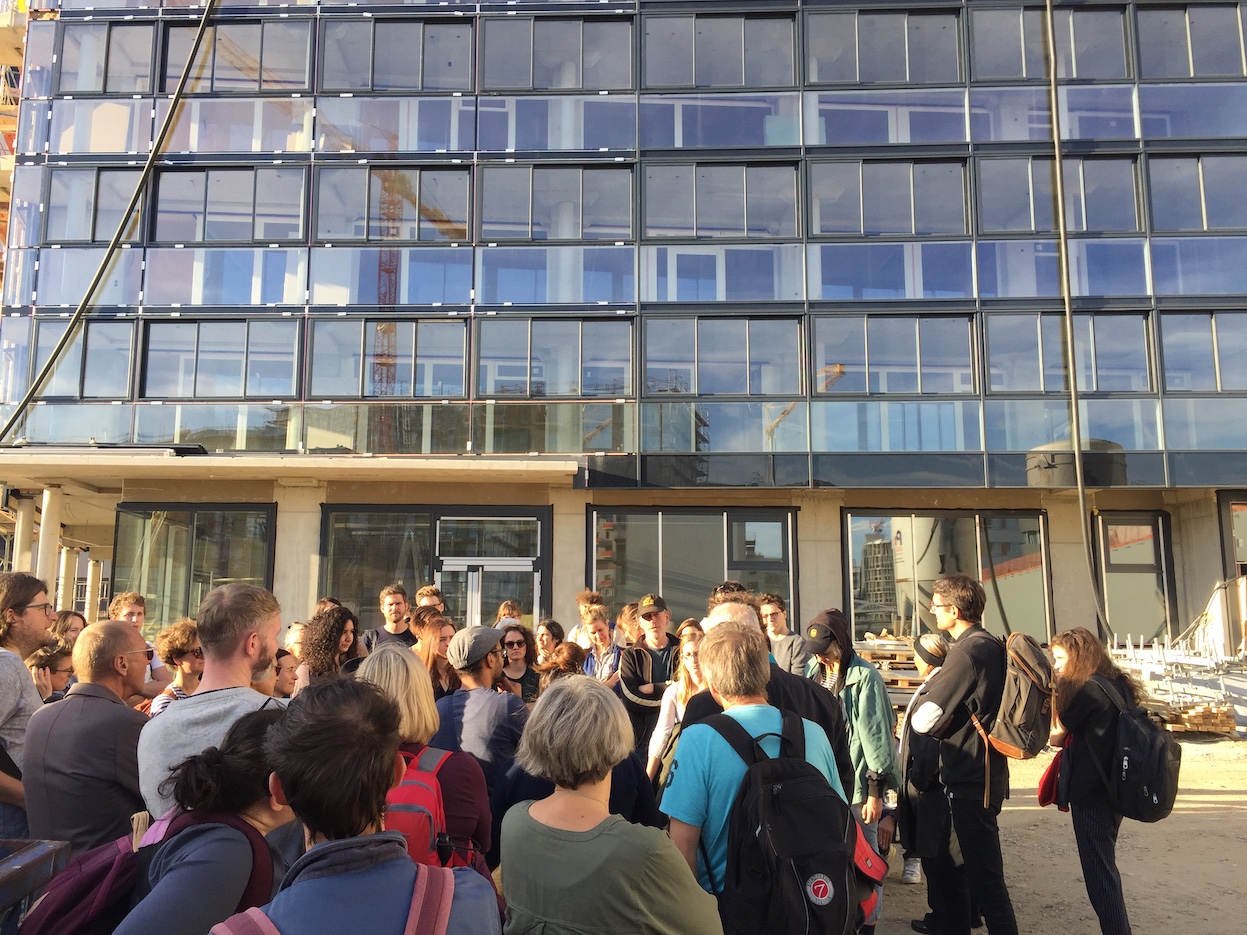
How could the participation of residents be more proactive?
A lot depends on the format: sometimes it’s easier to integrate a diversity of voices in smaller projects and ongoing renovation than in the formal electoral process which is often dominated by a few powerful people who have different interests than the majority. For instance, we plan to increase the power of tenants for renovation. We did it already in the project Smarter Together when we asked tenants about elements they could influence in the renovation process. When there is investment anyway, it is easier to rethink the use of gardens, for instance: if there are some proposals and then half of the community says that they want gardening beds, we can provide them with this.
We also try to cooperate with other dynamics in the city, for example, the Klimabudget is a participation project with a budget for three districts, where people can develop ideas and get funding for their ideas. This is a positive approach to participation. The success of participation largely depends on the scope of decision-making: if it’s about providing ideas for spending public money better or if it’s about saying no to certain ideas.
Participation also depends a lot on the topics discussed. People are more active when the issue on the table is to eliminate parking places, for instance, or any investment that directly impacts their bills. It is much more difficult to mobilise people around more abstract themes like sustainability or energy efficiency. The success of introducing more complex ideas also depends on the demographic composition of the local population. When we set up a participation process in student areas or where people have higher education levels, we have a hundred people discussing. In social housing neighbourhoods we often end up with only a few people: most people don’t have time or they don’t feel that they have anything to say.
We need to innovate in finding formats that work in social housing areas as well. While we are experimenting with digitalisation in some cases, we also need to be very “analogue” and hands-on. For instance, gardening works: it is very present, simple, low-key and people can see the direct impact of their contribution. We need to be present physically on the premises when we discuss about the uses of a room, the colours a building should have, or bicycle parking. We need to be very practical so that we can attract the interest and attention of the residents. When a subject is too abstract, too distant, usually we don’t receive any feedback at all.


